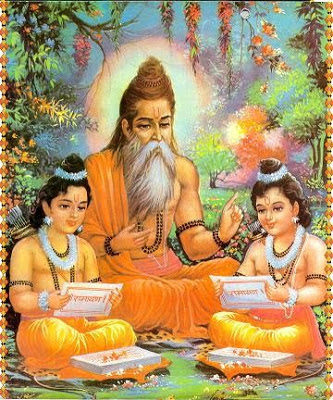Yoga has eight steps in its realization scale. In a previous post we talked about the first, about Yama , natural morality. Today we will talk about the second, the Niyama .
Most people know Yoga by its third step, the Asanas , or body exercises, by its room, Pranayama , breathing techniques; or at most for his seventh, Dhyana , or meditation. But as indicated in the title, Niyama is the great unknown, despite its great importance.
If the Yama are the observances towards others, the Niyama are the observances towards oneself. And from the point of view of Patanjali Maharishi, and from mine as well, one should not move on to the third step of Yoga without first practicing and integrating Niyama.
Although as things stand today, and with the superficiality that reigns on the planet, I would stay alone in Yoga class if I were so strict; since the vast majority of people are looking for a sport to stretch their backs.

Niyama points:
1.Soucha: Cleaning and purification of the physical body. Here comes personal hygiene, which many have neglected, and deep purification of the physical body, such as cleaning the nose, tongue, stomach and intestines. Yoga has techniques ( kriyas ) for such needs, and its practice contributes significantly to improve health, by eliminating both "external" dirt and internal. We will go deeper into another post on such issues.
2.Santosha: Contentment. This word is of the utmost importance to find happiness in this life. Contentment does not mean resignation, or conformism, it means being content with what one is and possesses in each moment, in this life. What happens to us at a given time is the best that could happen to our personal evolution at a given time; and what we have is what we need.So contentment brings us equanimity, peace and happiness. In the end it is a matter of intelligence: love what you do, love what you have, love the people with whom you share your life, love what happens to you in every moment. With this mental attitude, what can cloud our happiness?
3.Tapas: Means asceticism, austerity, or self-discipline. You don't have to be an ascetic, or make votes of any kind. It simply means that a practice must be sought and followed with discipline every day; that is part of the daily routine, such as eating, drinking or sleeping. Starting something is easy, be it an activity or a relationship. The really difficult thing is to keep it in time, to have enough perseverance to deepen it, without giving in to the first difficulties. In the end, constant practice makes one a teacher, whatever the discipline; but in this case, by faithfully following the practices of Yoga, one becomes a Master with capital letters, in the art of Life.
4.Swadhyaya: Spiritual or metaphysical study. Knowledge is power, and if we do not know our object of study, practices lack direction and depth. What is our object of study? We ourselves, the Being, the Atman, the ultimate meaning of existence. "Oh man, know yourself!" It was the inscription of the frontispiece of the sanctuary of Delphi. This has always been the maxim of Gnosis, of the knowledge of the Self. He who does not devote time to the study of such questions, is ignorant, and I do not say it in a derogatory tone, but with the meaning that ignorant is one who ignores something, and if in this case it is a relative knowledge of himself, his ignorance is even more devious.
5. Iswara Pranidhana : Surrender to the absolute, devotion to God. This is perhaps the most conflictive point, especially today in our western culture. It consists in rendering our actions to the divine that dwells in us, in having faith and devotion in God, or that principle that underlies all things, orders them and gives them meaning. In any case it is not a blind faith, but a certainty that arises with practice. A certainty that there is something beyond the finite matter, something that transcends, sustains and orders it. We are not alone in our journey, and although we are not aware of it, sooner or later, Iswara Pranidhana awakens in every sincere seeker.
These are the five principles of Niyama .
(A bit of irony)
- Do you practice Yoga?
- Yes, the practical in the sports center for three months; Look how I bend and how I make the pine. I think in three more months of practice I have already mastered it.
- Me too, I have been practicing it for a year, I think I will soon take a course to be a teacher.
- The other day I read a post about Niyama.
- Niyama? What is that?
Aimar Rollan (Gopal)















0 comentarios :
Post a Comment